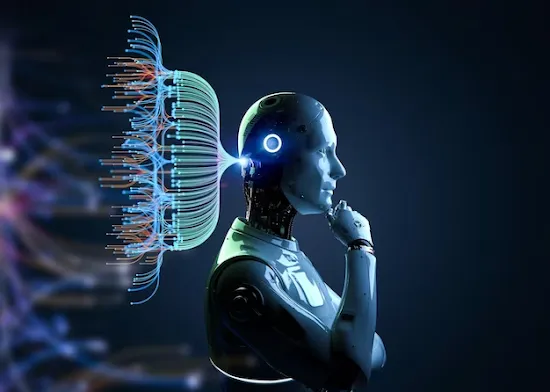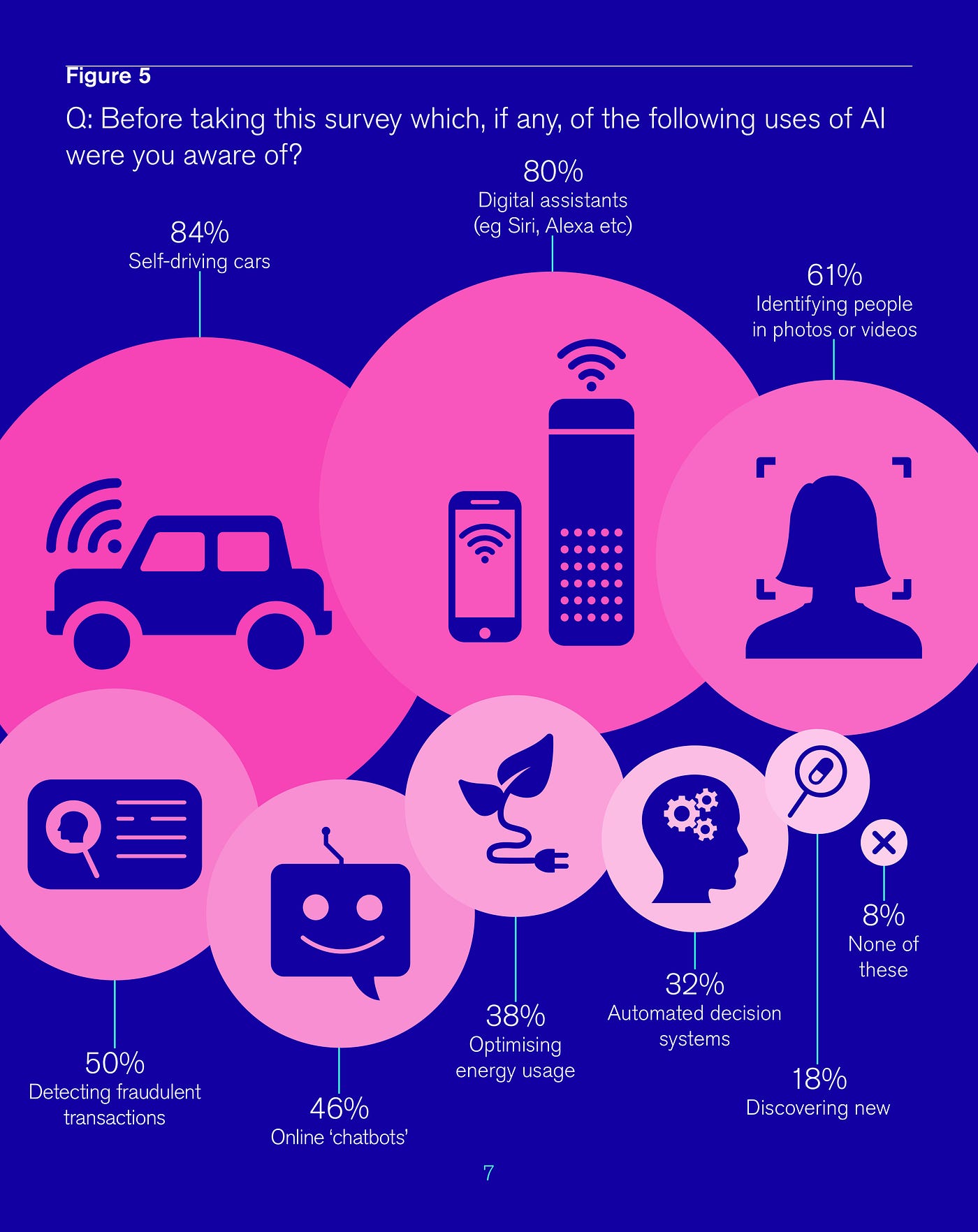What is AI ?
Artificial Intelligence (AI) refers to the development of computer systems that can perform tasks that typically require human intelligence. These tasks include learning, reasoning, problem-solving, understanding natural language, speech recognition, and computer vision, among others. AI aims to create machines or systems that can simulate human cognitive functions.
Function of AI :
There are mainly two types of AI:
1. Narrow AI (Weak AI):
This type of AI is designed and trained for a particular task. It excels in performing specific functions but lacks the broad cognitive abilities of humans. Examples include speech recognition, image recognition, and virtual personal assistants like Siri or Alexa.
2.General AI(Strong AI):
This is a more advanced form of AI that possesses the ability to understand, learn, and apply knowledge across diverse tasks, similar to human intelligence. General AI remains a theoretical concept.
Here are some key component about AI
•Machine Learning (ML):
A subset of AI that involves the development of algorithms that enable machines to learn patterns and make predictions or decisions based on data. There are different types of machine learning, including supervised learning, unsupervised learning, and reinforcement learning.
•Deep Learning:
A subfield of machine learning that involves neural networks with many layers (deep neural networks). Deep learning has shown remarkable success in tasks such as image and speech recognition.
•Natural Language Processing (NLP):
A field of AI that focuses on the interaction between computers and humans using natural language. NLP enables machines to understand, interpret, and generate human-like text.
•Computer Vision:
The ability of machines to interpret and understand visual information from the world, enabling tasks such as image and video recognition.
•Robotics:
The integration of AI into robots, allowing them to perceive their environment, make decisions, and perform tasks autonomously.
•Ethical Considerations:
As AI technologies advance, there are increasing discussions about the ethical implications of AI, including issues related to bias in algorithms, privacy concerns, job displacement, and the potential for misuse.
The impact of AI on society is a complex and nuanced topic, and opinions on whether it is a blessing or a curse can vary.
Here are some perspectives on both sides:
Blessings of AI:
1.Automation and Efficiency:
AI has the potential to automate routine and repetitive tasks, improving efficiency and allowing humans to focus on more creative and complex work.
2.Medical Advancements:
AI is being used in healthcare for tasks such as diagnostics, drug discovery, and personalized medicine. This can lead to improved patient outcomes and more efficient healthcare systems.
3.Improved Decision-Making:
AI systems can analyze vast amounts of data quickly and make data-driven decisions, potentially leading to more informed and optimized choices in various fields.
4.Innovation and Creativity:
AI technologies, particularly in machine learning and deep learning, can contribute to breakthroughs in various domains, fostering innovation and creativity.
5.Assistance and Support:
AI-powered virtual assistants and chatbots can provide valuable support in customer service, education, and various other areas, enhancing user experiences.
Curse or Challenges of AI:
1.Job Displacement:
The automation of certain tasks through AI can lead to job displacement, particularly in industries where routine tasks are easily automated. This can result in economic and social challenges.
2.Bias and Fairness:
AI systems can inherit and perpetuate biases present in the data they are trained on, leading to unfair and discriminatory outcomes. Ensuring fairness in AI algorithms is a significant challenge.
3.Privacy Concerns:
The widespread use of AI, especially in surveillance and data analysis, raises concerns about privacy and the potential misuse of personal information.
4.Ethical Dilemmas:
AI systems may face ethical dilemmas, and there is an ongoing need to establish guidelines and regulations to ensure responsible AI development and use.
5.Security Risks:
As AI becomes more sophisticated, there is a concern about the potential for malicious use, including the creation of deep-fakes, cyberattacks, and other security risks.
The ability of AI to copy faces and voices, often referred to as deep-fakes, has raised significant concerns regarding privacy, security, and misinformation. Here’s a brief overview of these issues:
1.Deepfake Technology:
Face Copy: Deep-fake technology uses machine learning algorithms, particularly deep neural networks, to manipulate and generate realistic-looking images or videos. This can involve replacing the face of a person in an existing video with a different face.
Voice Copy: Voice cloning technology utilizes AI algorithms to mimic someone’s voice by analyzing and synthesizing audio recordings.
2.Concerns:
Misinformation and Manipulation: Deepfakes can be used to create convincing fake content, such as videos of individuals saying or doing things they never did. This raises concerns about the potential for spreading false information and manipulating public perception.
Privacy Invasion: The ability to create realistic face and voice copies raises privacy concerns, as individuals may find themselves unknowingly featured in manipulated content.
3.Applications:
Entertainment: Deepfake technology has been used for entertainment purposes, such as inserting actors into historical footage or creating humorous videos.
Security Threats: There are concerns about the malicious use of deepfakes for impersonation, identity theft, or creating fake content for extortion or blackmail.
4.Countermeasures:
Detection Tools: Researchers and tech companies are actively working on developing tools to detect deepfakes. These tools use AI to analyze videos and identify anomalies or inconsistencies that may indicate manipulation.
Legislation and Regulation: Some regions are considering or have implemented legislation to address the malicious use of deepfake technology. These regulations may involve penalties for creating and disseminating deceptive content.
5.Awareness and Education:
Public Awareness: Increasing awareness about the existence of deepfake technology is crucial for helping individuals critically assess the content they encounter online.
Media Literacy: Promoting media literacy can empower people to recognize and question potentially manipulated content.
Ultimately, whether AI is considered a blessing or a curse depends on how it is developed, implemented, and managed. Striking a balance between innovation and addressing the challenges associated with AI is crucial for maximizing its benefits while minimizing potential negative consequences. Society, policymakers, and technologists all play a role in shaping the trajectory of AI’s impact on our lives.






.png)






0 Comments